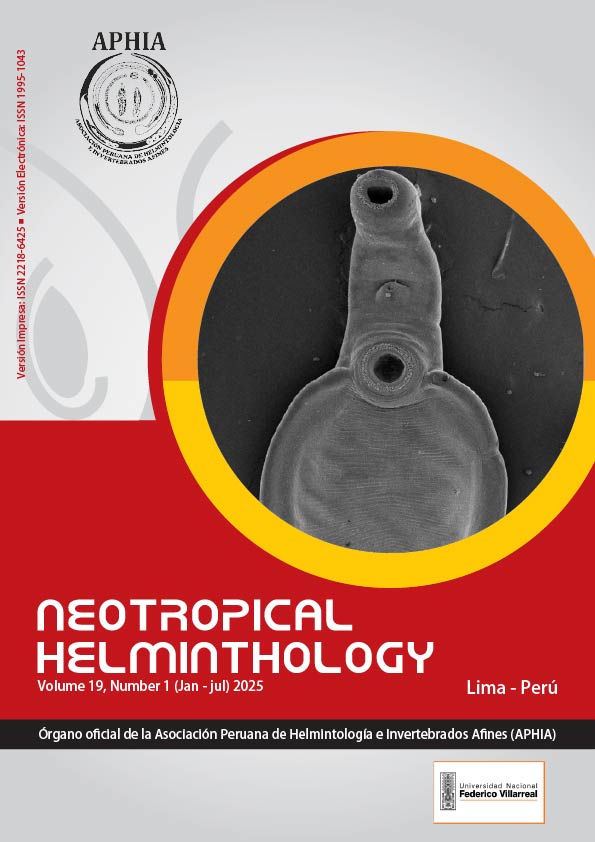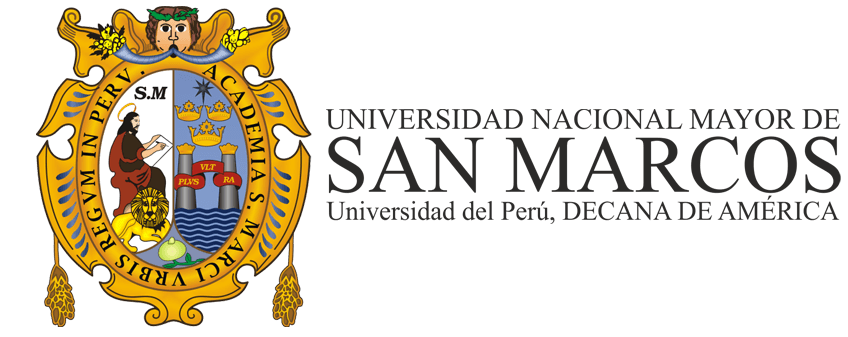BIODIVERSITY OF FISH PARASITES FROM GUANDU RIVER, SOUTHEASTERN BRAZIL: AN ECOLOGICAL APPROACH
DOI:
https://doi.org/10.24039/rnh2011521073Keywords:
Biodiversity, Brazil, ecology parasite, fishes, Guandu River, parasites.Abstract
Here, we performed a quantitative analysis of the parasite communities in 21 species of fish from Guandu River, Brazil; we evaluated the effects of some host traits (body size, social behavior, fish's habitat, trophic category and ability to migration) on the diversity of their communities of metazoan parasites. To measure quantitative diversity, we used parasite species richness, as well as the average taxonomic distinctness of the assemblage and its variance. The parasite species richness, the taxonomic distinctness and the variance were unaffected by the number of host individuals examined per species. Fish body length proved to be the main predictor of parasite species richness, although it did not correlate with parasite taxonomic distinctiveness. The mains host features associated with the taxonomic diversity of parasites were schooling behavior and omnivores trophic category. Parasite communities found in fish from Guandu River isolationist communities.
Downloads
Published
How to Cite
Issue
Section
License

This work is licensed under a Creative Commons Attribution-NonCommercial-NoDerivatives 4.0 International License.
OBJETO: El AUTOR-CEDENTE transfiere de manera TOTAL Y SIN LIMITACIÓN alguna al CESIONARIO los derechos patrimoniales que le corresponden sobre la (s) obra(s) tituladas: xxxxxxxxxxxxxxxx, por el tiempo que establezca la ley internacional. En virtud de lo anterior, se entiende que el CESIONARIO adquiere el derecho de reproducción en todas sus modalidades, incluso para inclusión audiovisual; el derecho de transformación o adaptación, comunicación pública, traducción, distribución y, en general, cualquier tipo de explotación que de las obras se pueda realizar por cualquier medio conocido o por conocer en el territorio nacional o internacional.
REMUNERACIÓN: La cesión de los derechos patrimoniales de autor que mediante este contrato se hace será a título gratuito.
CONDICIONES Y LEGITIMIDAD DE LOS DERECHOS: El AUTOR-CEDENTE garantiza que es propietario integral de los derechos de explotación de la(s) obra(s) y en consecuencia garantiza que puede contratar y transferir los derechos aquí cedidos sin ningún tipo de limitación por no tener ningún tipo de gravamen, limitación o disposición. En todo caso, responderá por cualquier reclamo que en materia de derecho de autor se pueda presentar, exonerando de cualquier responsabilidad al CESIONARIO.
LICENCIA DE ACCESO ABIERTO: El AUTOR-CEDENTE autoriza que manuscrito publicado en La Revista Neotropical Helminthology permanece disponible para su consulta pública en el sitio web https://www.neotropicalhelminthology.com/ y en los diferentes sistemas de indexación y bases de datos en las que la revista tiene visibilidad, bajo la licencia Creative Commons, en la modalidad Reconocimiento-No comercial- Sin Trabajos derivados –aprobada en Perú, y por lo tanto son de acceso abierto. De ahí que los autores dan, sin derecho a retribución económica, a la Asociación Peruana de Helmintología e Invertebrados Afines (APHIA), los derechos de autor para la edición y reproducción a través de diferentes medios de difusión.


 Numero 2 Volumen 19 - 2025 (versión Anticipada)
Numero 2 Volumen 19 - 2025 (versión Anticipada)














































